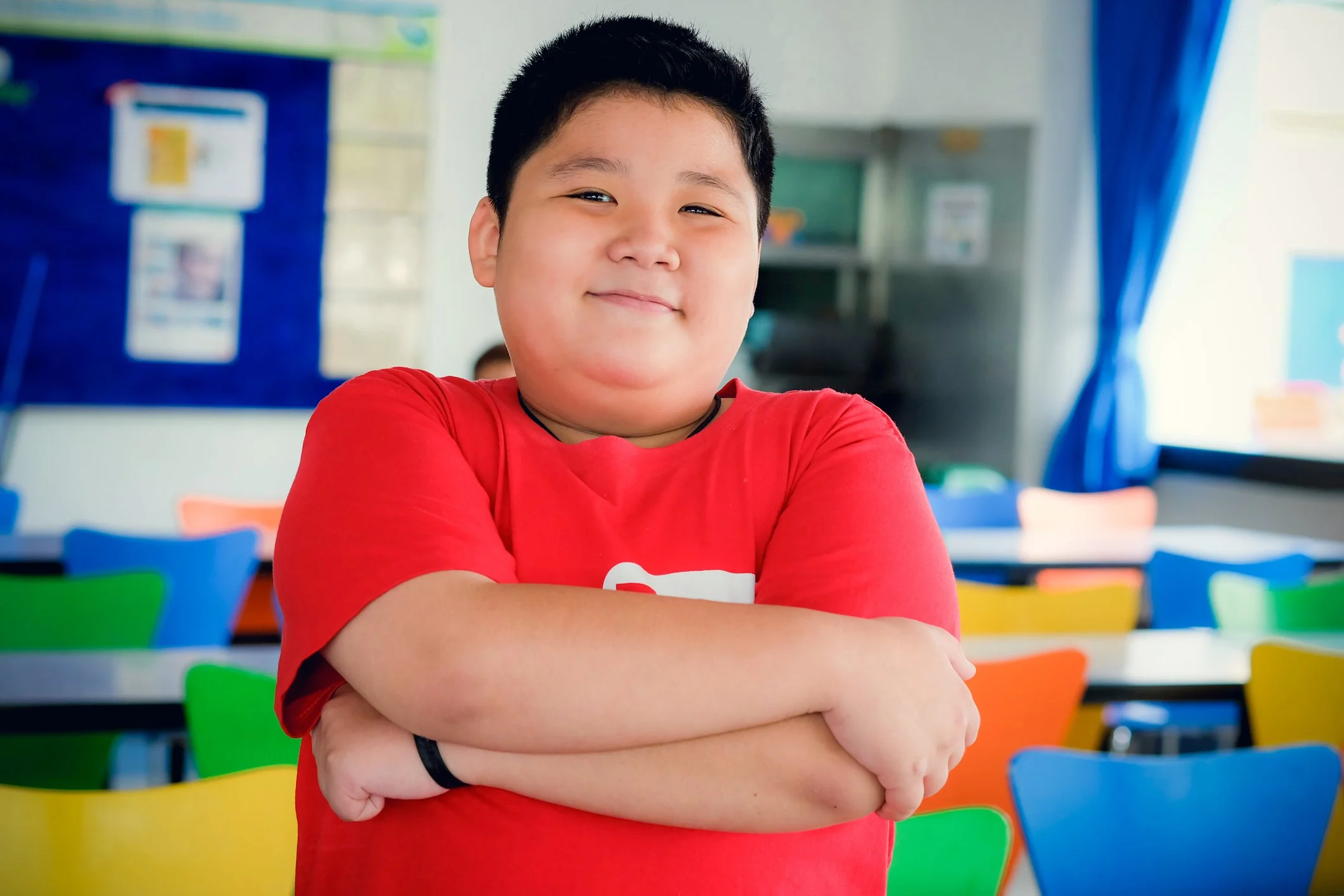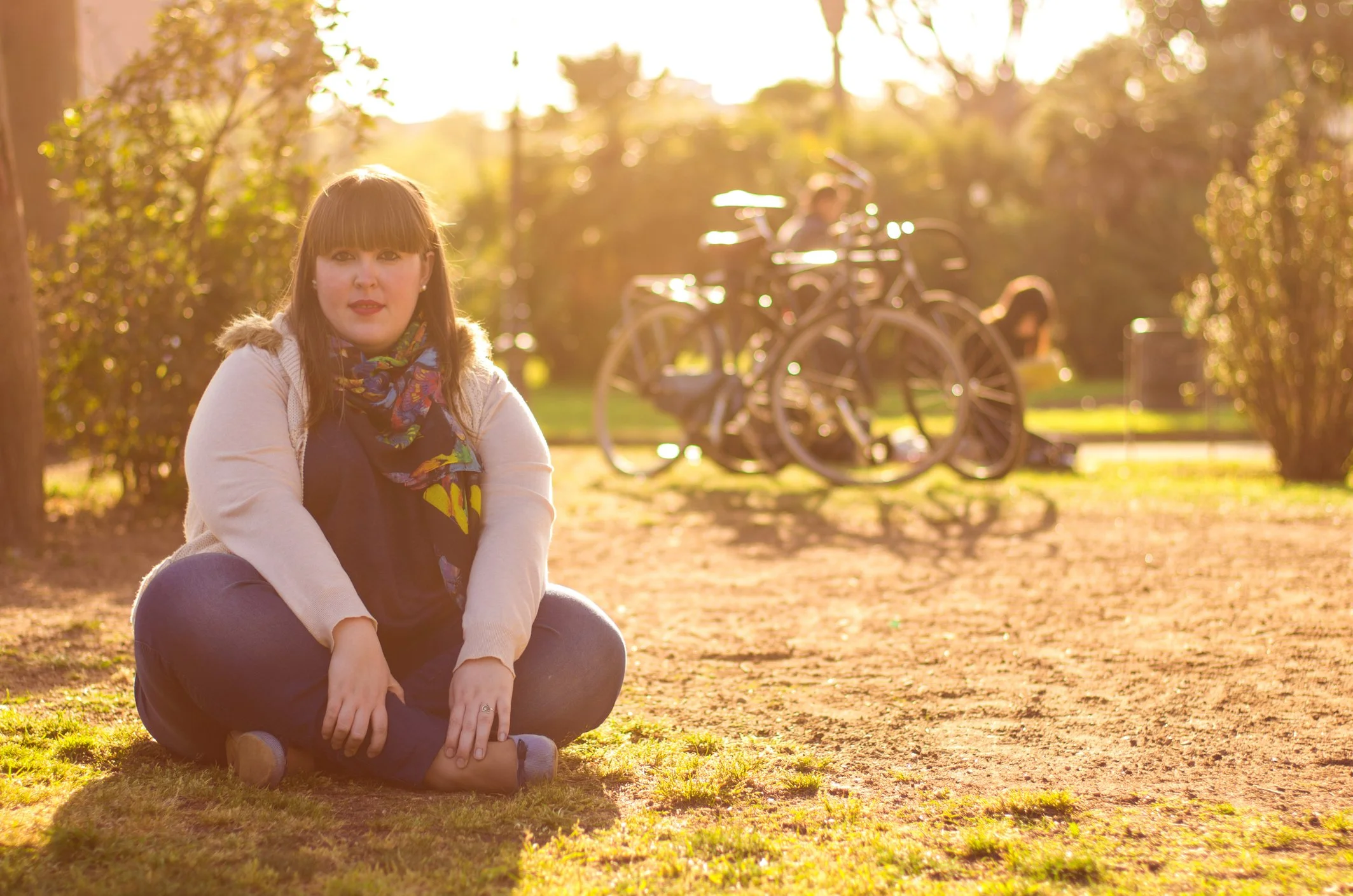What’s fat liberation got to do with parenting?
It’s a practice, just like parenting is a practice.
It’s raising resilient kids in a fat-phobic world.
It’s fighting anti-fat bias & oppression.
It’s creating more justice and community.
Fat phobia and diet culture bombard parents with the harmful messages that the worst outcome for ourselves AND our kids is to be fat. These messages are relentless and can come at us from social media, news articles, friends, families and even health care providers. And these anti-fat biases ingrain the belief that thinness = health, happiness, and success.
Consequently, as parents of newborns to teenagers, we’re worrying about how to ensure our kids are healthy; growing enough, but not “too much” on the pediatrician’s weight chart. We’re trying to make sure our kids don’t get bullied at school. Or that their self-image and confidence aren’t just tied to looks or size.
We know we want to do better for our kids. We’re gingerly exploring the idea that weight ISN’T connected to health. That body diversity has ALWAYS existed and is a beautiful thing. That “fat” can be just a neutral description.
But doubts can creep in with a headline, a passing remark from a grandparent, a pair of pants outgrown. And in this age of constant marketing of weight-loss medications and GLP-1s, it’s even harder to stay grounded in the truth of Body Trust®.
That’s when having a set of values and a fat liberation framework to fall back on, along with a group of other parents who are supporting you, can be crucial.
Upcoming Offerings
-
Fat Liberation Parenting Workshop
This is a virtual workshop offering an opportunity to learn, reflect, and connect with other parents around
how we raise kids in a world that is fat-phobic,
exploring what we want for our kids and our relationships with them when it comes to weight, body, health, etc,
the challenges we encounter AND supportive resources.
-
Fat Parent Connections
Fat Parent Connections will be an opportunity to gather with other fat parents and caregivers over zoom
to create community with others who *get* it
receive and lend support
and share the joys & challenges of raising resilient children in a fat-phobic world.
Fat parents and caregivers of all genders welcome. Open to folks in and outside of Washington State. This is not a therapy group.
-
Fat liberation is more than body positivity because while it can look like improving how we feel about our body, it also recognizes
the social, cultural, and political context of being fat
that the people at the highest weights experience the most discrimination and oppression
that weight stigma affects people’s access to health care, jobs, schools, travel, and other systems and parts of daily life
the size of someone's body does not determine their worth or value or tell anyone anything about their health
anti-fatness is intertwined with anti-Blackness and so combatting anti-fat bias must also be grounded in anti-racist practices
we cannot ignore the intersection of our other identities like race, gender identity, sexuality, disability status, neurodivergence, and other identities
fat discrimination can be deadly
It might feel like this is a new movement, but actually it’s been around for decades. Members of the Fat Underground, Judy Freespirit and Sara Aldebaran, wrote a Fat Liberation Manifesto in November 1973.
Here are some excerpts: “We believe that fat people are fully entitled to human respect and recognition. We are angry at mistreatment by commercial and sexist interests…We see our struggle as allied with the struggles of other oppressed groups against classism, racism, sexism, ageism, financial exploitation, imperialism, and the like. We demand equal rights for fat people in all aspects of life…We demand equal access to goods and services in the public domain, and an end to discrimination against us in the areas of employment, education, public facilities and health services…We fully intend to reclaim power over our bodies and our lives. We commit ourselves to pursue these goals together.”
The central tenets of fat liberation include celebrating size diversity; fighting for equal rights and access for fat people; and a recognition of intersectionality — that along with superfat and infinifat folks, fat folks who also hold identities that are marginalized like Black, Indigenous, and people of color, LGBTQIA+ folx, and disabled people, will experience the worst impacts of weight stigma and anti-fat bias.
-
Many of the early fat activists were feminists, Jewish, queer, Black, women of color. Sirius Bonner has a great piece about the history of fat acceptance at the Center for Body Trust.
She writes: “We owe an incredible debt of gratitude to all of these pioneers of the fat acceptance movement. To the men who were able to leverage their proximity to power and privilege to have their voices heard as advocates for fat bodies. To the women who dared to challenge society’s hatred of fat bodies. To the feminist and queer activists who provided much of the radical thought that the movement needed. To disability activists who showed us how to navigate the legal system. To the activists of color who eventually forced mainstream activists to acknowledge that some are more deeply impacted than others. Without any of their contributions, the fat acceptance movement would have stalled in its tracks. We would not have Health at Every SizeⓇ (HAES), Body Positivity, or Fat Liberation without all that these early leaders brought to us. We thank them for all they have provided; we could not have possibly made it to this point without their courage, wisdom, and perseverance.”
I echo gratitude for these early activists and work to center anti-oppression and disability justice in my work and offerings.
-
A secure relationship with your body, like secure attachment, means recognizing your body’s needs and having confidence that you can meet those needs. And, also like secure attachment between a child and their caregiver, it doesn’t mean we have to be perfect or get it right 100% of the time. Intention, “good enough”, and repair when we get it wrong are what’s most important.
Diet culture gets in the way of this secure relationship with your body by telling us to rely on external rules about what, when, and how much to eat and/or exercise. Diet culture tells us not to trust hunger and fullness cues, pain, or needs for rest.
We can work to develop a secure relationship with our bodies as adults and we can support our kids to create and maintain a secure relationship with their bodies.
Unsure where to start?
Reach out via email or schedule a brief call to chat about offerings and what you’re looking for.
About me
I’m Laurie, a mid-fat, white, queer, neurodivergent currently able-bodied, nonbinary person. I’m a mother to an aspiring artist-scientist middle schooler. Over the last twenty years, I’ve been working with parents in various capacities, most recently as a therapist in private practice. I love fostering community through groups and connecting folks.
I believe fat bodies have and will always exist. I believe the size of someone’s body does not determine their worth, value, or health. I believe we need to dismantle anti-fat bias and weight stigma in our systems, institutions and popular media to ensure access, participation and justice for all people. I believe anti-fatness is intertwined with anti-Blackness and thus combatting anti-fat bias must also be grounded in anti-racist practices. I believe in protecting fat kids from bullying, discrimination, trauma by both supporting individual parents and caregivers and working for fat liberation broadly.












